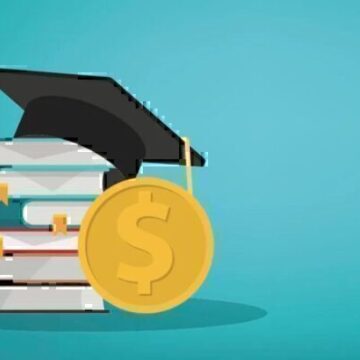Owning a home is part of the American dream and a major step for any family. Making the dream a reality takes planning before you can make your way to the closing table and eventually move in. When looking at the process of how to buy a house, there are steps you can take, and you can start today.
The good news: There’s nothing mysterious about buying a home. You just need to be ready to make some important decisions in a timely manner and then, take action.
The real estate market can be a challenge, coupled with rising prices and other financial uncertainties. What if you are dealing with a lot of debt? What if you have a child or elderly parents to care for? What if you’re disabled?
If you’re facing any of these challenges, saving for a down payment can seem impossible. But it’s not. If you are willing to change your mindset about the home you want, and how fast you want to get there, you can begin saving today. In fact, if you are willing to start saving early, you may be able to buy a home sooner.
As a buyer, you will get to make decisions about the type of home you want, how much you can afford to pay, choosing the right financing partner, and many more choices. Before applying for a mortgage on a home, you’ll also need to decide on the mortgage type, the loan’s interest rate, and the amount you plan to borrow. Depending on your goals and the type of home you want, these decisions will affect what mortgage terms you can accept. But even before getting to those important details, you want to make sure your financial house is in order.
In addition to finding the right home, you’ll need to research your credit and get pre-approved for a mortgage. You’ll also need to know the difference between buying a home in a state or region where you live now and buying a home that will be in a different state or region.
When you decide to buy a home, you’ll need to decide between buying a home that suits your needs now or buying a home that might give you more room to grow later.
While every individual’s situation is different, there are some helpful strategies to consider:
1. Get Prepared to Save
The first step to getting ready to buy a house is to get your finances together. Start by getting a handle on what kind of house you want and how much you can afford. Once you have these two things figured out, then do the following:
Start tracking your spending. Be prepared to get a handle on your expenses. If you’ve got big plans for saving for a down payment, you’ll need to start tracking your spending right away. Start by keeping a spending journal. Write down every little thing you spend every week. Be sure to write down the date and amount as well as the location.
Once you’ve looked at your current finances, think about where you would like to be in the future. Buying a home is a great goal to have. At the same time, thoughtfully consider your longer-term financial goals, like retirement.
2. Understand Where You Are Financially
As you prepare to buy a home, it’s important to stay on top of your finances. For many, understanding personal finances can be a mystery. There are answers available to your questions when you know where to look. A trusted financial counselor from GreenPath can help you better understand some of the most common questions about credit reports, your scores, and what you can do to be ready to buy a home or any other large purchase.
3. Review Your Credit Report
You have probably heard this before, but your credit report can be very important as you work on steps to buying a house. If you’ve had challenges in the past and need to rebuild your credit, you’re not alone. The Consumer Financial Protection Bureau says nearly 1 in 4 adults in the U.S. have what is considered a poor credit score. This means a score of 580 or below. The good news is, with some work, planning, and a better financial mindset, you can improve that score. With a higher credit score, you have a better chance of being approved for things like mortgages, car loans, and credit cards.
4. Stay Current on Your bills and Catch up on Past Due Bills
Staying on top of all your bills may be easier said than done – especially if you face an unexpected financial crisis or work interruption. How you pay your bills can affect your credit score. Negative information —like missed or late payments —could affect your credit score for years and have an impact on getting into that new home.
It may sound simple but setting up a budget can help you get and stay on track. GreenPath offers resources to manage your expenses through budgeting for some tips you can implement immediately.
If you are having trouble managing your bills, consider contacting your lenders. They may be able to help you with a payment plan.
5. How Much Can You Afford to Pay Each Month?
When you’re preparing to buy a house, it’s important to have a good idea of how much you can afford each month.
What is your total monthly income? How much do you need to pay in rent or mortgage? How much do you have available?
Don’t get caught up in the numbers! Keep in mind that you need to have a comfortable amount of money in your budget so that you have money available to do the things you enjoy.
6. Is Now the Right Time to Buy a Home?
The right time to buy a home is when you’ll be able to afford it and feel secure enough in your financial circumstances to be able to meet this new obligation.
7. Look at the Financing
Once you have put your plan in place, considered where you are financially, and found your dream home, it’s time to consider how you are going to pay for it. Remember, you can’t afford a house without a good loan.
8. When you Find the Right House, Make Sure You’re Ready to Take Action
You can get a preapproval letter in advance to know how much you can afford to borrow, and when you need to put an offer in.
All of this may sound overwhelming, but help is available. As you begin your journey, reach out to GreenPath for counseling, tips on managing credit, and free educational tools to make the home buying process much easier.
GreenPath can be your partner as you consider buying a home. We can help you understand:
- The Realtor’s Role: Buyer and Seller
- Down Payment: How much do you need
- Types of Mortgages: Understanding loan options
- Mortgage Lenders: How to Choose
- Home Appraisals
- Pre-qualifying for financing
- Home Inspection: What Should It Cover?
- Escrow Accounts: The What and Why
- Insurance and other costs of ownership
GreenPath counseling and education can help you navigate the process and make better, informed decisions.
Helpful Links
GreenPath Financial Service
GreenPath, A Financial Resource
If you’re interested in building healthy financial habits, paying down debt, or saving for what matters most, take a look at these free financial tools.










